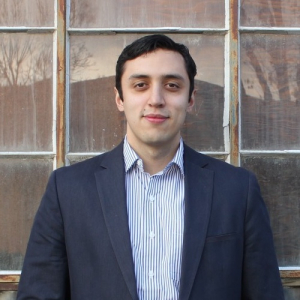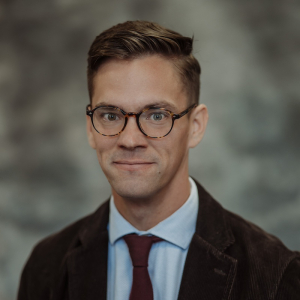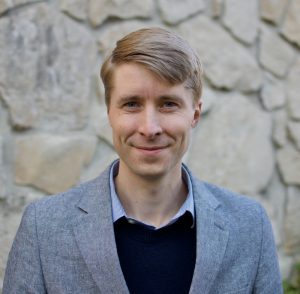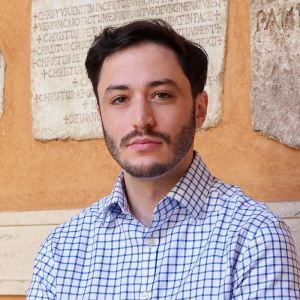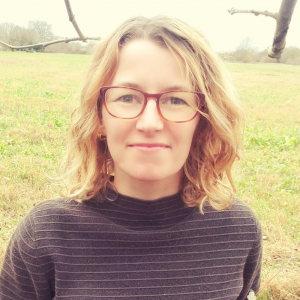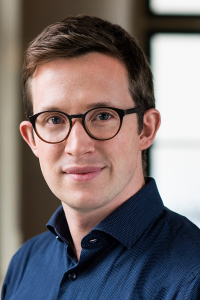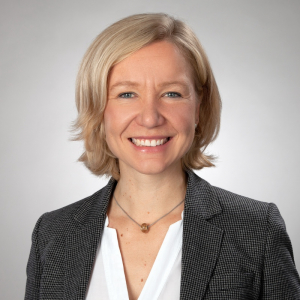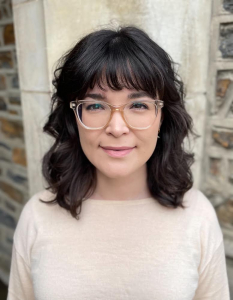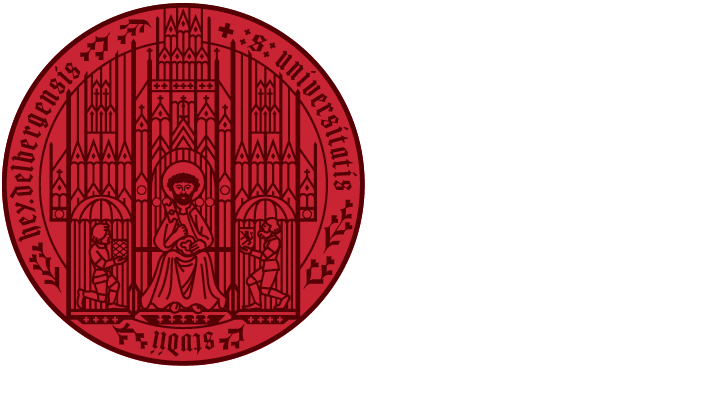Sowing the Sacred. Mexican Pentecostal Farmworkers in California (Oxford: Oxford University Press, 2022).
Current Position:
Lloyd D. Barba is an Assistant Professor of Religion at Amherst College (USA).
Current Research Activities:
His next research monographs are on the history of the Sanctuary Movement in the United States (from the 1980s to the present day) and a religious biography of Cesar Chavez.
“God and spirituality” in the award-winning publication:
Sowing the Sacred shows how the spiritual strivings of farmworkers took deep root and ultimately flourished in the physically punishing world of industrial agriculture. The Mexican Pentecostal farmworkers in this book labored in a dehumanizing system of industrial agriculture, a well-oiled machine designed to keep its workers uprooted and impoverished. The farmworkers, amidst what some called a transient lifestyle, trusted God to direct their every step. This book’s historical intervention chronicles human dignity via spirituality in conditions of little to no respect. Contrary to the pervasive image of Mexican farmworkers as culturally vacuous, lacking creative genius, and mere bodies of labor in a vertiginous cycle of migrant labor, Sowing the Sacred argues that Pentecostal farmworkers carved out a robust spirituality in these conditions and in doing so produced a vast record of cultural vibrancy.
Academic Address:
Lloyd D. Barba, PhD
Department of Religion
Amherst College
17 Barrett Hill Road
Amherst, MA 01002
The Pauline History of Hebrews and the Memory of a Jewish Apostle
Current Position:
Warren Campbell is currently a Visiting Assistant Professor of Religion at Wabash College in Indiana, USA.
Current Research Activities:
Campbell is currently working on two projects. The first is a fresh translation of a second-century text known as the Ascension of Isaiah, featuring commentarial notes and critical introduction. The second project, The Flesh of Jesus, concerns how the New Testament and ancient Christian literature engage with the entanglements of Jesus’ ethnicity as Jewish.
“God and Spirituality“ in the award-winning publication:
Though anonymous, the Letter to the Hebrews has a lengthy history of Pauline ascription, transmission, and use. The Pauline History of Hebrews examines how this anonymous text was configured as a Pauline letter addressed to Jews in Jerusalem. This project shows how authorial claims were sustained primarily through manuscript transmission and in response ancient readers variously synthesized Hebrews as a Pauline letter in their literary projects. Given the Jewish valence of the title, the degrees of synthesis are markedly unstable; some resist and ostracize the letter for its Jewish resonances while others capitalize on the text as Paul’s definitive description of Jewish reading and interpretation. Throughout its history as a Pauline letter, Hebrews never full arrives but remains a troubling text that constantly requires defense and explanation. Precisely because it lacks such stability, its material and readerly history illuminates how Paul’s Jewishness was continually negotiated.
Academic Address:
Dr. Campbell
Department of Religion
Wabash College
Center Hall 202
Crawfordsville, IN, 47933
Email: campbelw@wabash.edu
Award-Winning Work:
The Suffering Son of David in Matthew’s Passion Narrative
Current Position:
Current Research Activities:
Johnson’s current project examines popular movements in first-century Judaism and how the Jesus movement positioned itself in relation to competing messiah and prophet groups.
“God and Spirituality“ in the award-winning publication:
Academic Address:
Nathan C. Johnson, PhD
Department of Philosophy and Religion
1400 East Hanna Avenue
Indianapolis, IN 46227
johnsonn002@uindy.edu
Die basileia tou theou im Markusevangelium
Current Position:
Current Research Activities:
Judith König is currently developing her habilitation project, a study on the discussion of sexual autonomy in biblical and apocryphal texts. The project is embedded in the wider context of research into the role of biblical and parabiblical motifs in sexual abuse today.
“God and Spirituality“ in the award-winning publication:
The dissertation argues that through a coherent storyline the gospel of Mark develops the idea of the basileia tou theou (conventionally translated as kingdom of God) more and more as a concept of the royal presence of God. One of the gospel’s most central questions is how the presence of God can be experienced even though closeness to Jesus cannot be achieved any longer by following the human being Jesus around Galilee. This is a spiritual question insofar as experiencing the presence of God is one of the main objectives for those desiring to lead a spiritual life. The dissertation shows that the gospel of Mark perceives the nearness of the basileia of God as a catalyst for a new kind of sensory perception of the world. The call to develop, train, and use this new kind of perception as well as the transformative power of the gospel of Mark which makes such a new perception possible reach beyond the characters of the story and affects readers/listeners of Mark’s narrative as well. It offers readers/listeners the chance to fulfil a core desire of spiritual life: to come into contact with the royal presence of God.
Academic Address:
Akademische Adresse: Dr. Judith König
Lehrstuhl für Exegese und Hermeneutik des Neuen Testaments
Fakultät für Katholische Theologie
Universität Regensburg
Universitätsstraße 31
93053 Regensburg
Legal Writing, Legal Practice: The Biblical Bailment Law and Divine Justice
Current Position:
Yael Landman is Assistant Professor of Bible at the Jewish Theological Seminary in New York City.
Current Research Activities:
Yael Landman’s next book will offer a fresh approach to biblical law based on insights from Law and Literature scholarship. Recent work in Law and Literature has challenged the notion that “law” and “literature” are completely distinct, bounded entities, instead calling for a more porous understanding of the two. This book will reframe questions of genre surrounding biblical legal and law-related texts so that they can be used fruitfully despite these questions, in service of a larger program of accessing aspects of the cultures that produced them.
“God and Spirituality“ in the award-winning publication:
Prescriptive law writings rarely mirror the ways a society practices law, a fact that raises special problems for the social and legal historian. Through close analysis of the laws of bailment (i.e., temporary safekeeping) in Exodus 22, Legal Writing, Legal Practice: The Biblical Bailment Law and Divine Justice probes the relationship of law in the biblical law collections and law-in-practice in ancient Israel, and exposes a vision of divine justice at the heart of Pentateuchal law. This conception of divine justice promotes values such as the priority of protecting vulnerable parties in arrangements that open them to exploitation, and the importance of satisfying the wronged party of a suspect’s innocence, through use of legal procedures such as a divine exculpatory oath. Legal Writing, Legal Practice further demonstrates that ancient Near Eastern bailment laws exhibit continuity with post-biblical Jewish law. This book advances an approach to the study of biblical law that connects Pentateuchal and ancient Near Eastern law collections, biblical narrative and prophecy, and Mesopotamian legal documents, and joins philological and comparative analysis with humanistic legal approaches, in order to access how people thought about and practiced law in ancient Israel.
Academic Address:
Jewish Theological Seminary
3080 Broadway
New York, NY 10027
The Christianization of Knowledge in Late Antiquity: Intellectual and Material Transformations (Cambridge University Press, 2023).
Current Position:
Current Research Activities:
I am finishing a book with Matthew Larsen (University of Copenhagen) titled Ancient Mediterranean Incarceration.
“God and Spirituality” in the award-winning publication:
The Christianization of Knowledge in Late Antiquity: Intellectual and Material Transformations (Cambridge University Press, 2023) traces the beginning of Late Antiquity from a new angle. Shifting the focus away from the Christianization of people or the transformation of institutions, Mark Letteney interrogates the creation of novel and durable structures of knowledge across the Roman scholarly landscape, and the embedding of those changes in manuscript witnesses. Letteney explores scholarly productions ranging from juristic writings and legal compendia to theological tractates, military handbooks, historical accounts, miscellanies, grammatical treatises, and the Palestinian Talmud. He demonstrates how imperial Christianity inflected the production of truth far beyond the domain of theology — and how intellectual tools forged in the fires of doctrinal controversy shed their theological baggage and came to undergird the great intellectual productions of the Theodosian Age, and their material expressions. Letteney’s volume offers new insights and a new approach to answering the perennial question: What does it mean for Rome to become Christian?
Academic Address:
Department of History
University of Washington
318 Smith Box 353560
Seattle, WA 98195–3560
Eschatology and the Saviour: The Gospel of Mary among Early Christian Dialogue Gospels
Current Position:
British Academy Postdoctoral Fellow at the University of Manchester
Current Research Activities:
I am currently engaged in several projects. My primary project, funded by the British Academy, examines how the Egyptian landscape shaped and is shaped by Coptic apocrypha, using the paradigm of “lived religion”. I am also working on martyrdom narratives and religious practices in Roman amphitheatres, the transformation of gospel literature into late antiquity, and the gendered construction of knowledge, as well as writing another more general book on the Gospel of Mary.
“God and Spirituality” in the award-winning publication:
In early Christian dialogue gospels, the ultimate divine revelatory source, Jesus, answers the queries of select disciples at the conclusion of his earthly career. Through penning these dialogues, early Christian authors sought to resolve the questions left unanswered in the canonical gospels, and they deployed various themes from earlier Christian literature in attempt to work out the ‘big questions’, such as how the world was created, how life should be lived, and what they might expect to happen in the future. Jesus’s teachings in these texts varied greatly, from affirming the resurrection of the flesh to denying it completely, but each teaching demonstrates a different way that early Jesus followers thought about God, Jesus, and spirituality. Eschatology and the Saviour: The Gospel of Mary among Early Christian Dialogue Gospels shows how various Christian authors navigated these issues through the dialogue gospel genre, arguing that the dialogical form was seen as a fitting vehicle for Christological and eschatological revelation.
Academic Address:
S1.5 Samuel Alexander Building
Oxford Road
University of Manchester, UK
Die Welt ist Gottes. Karl Barths Theologie der Welt im Kontext der Säkularisierung
Current Position:
I am a postdoctoral researcher and assistant at the Institute of Hermeneutics and Philosophy of Religion at the University of Zurich, Switzerland.
Current Research Activities:
I am working on a postdoctoral monograph on theological anthropology in the Anthropocene. In this project, I am concerned with anthropological shifts in the context of current ecological crises, and I ask what the concepts of sin and grace can mean in today’s situation.
“God and Spirituality“ in the award-winning publication:
How should theology respond to secularization? My dissertation shows that Karl Barth’s theology offers a nuanced and original response to this fundamental question. It rejects the tendency, so widespread in the 20th century, to tell the story of secularization as a story of decline. At the same time, it avoids a positive understanding of secularization as the “coming of age” of modern man in relation to God. Instead, it emphasizes in a new way that God is also the Lord of the secular world, of the secular state, and secular culture as such. In The World is God’s, I reconstruct, interpret, and evaluate this specific theology of the world that helped Barth to respond theologically to the end of the traditional Christendom model.
Academic Address:
University of Zurich
Faculty of Theology
Institute of Hermeneutics and Philosophy of Religion
Kirchgasse 9
CH-8001 Zürich
Switzerland
michael.pfenninger[at]uzh.ch
Monastische Bildung. Johannes Cassians Collationes Patrum
Current Position:
Postdoc and research assistant at the Chair for Church History, Faculty of Theology, Georg-August-University Göttingen
Current Research Activities:
Dorothee Schenk is working on a habilitation project entitled “Die narrative Konstruktion von Netzwerken und Identitäten – Reflexionen auf Streitigkeiten und Umbruchsituationen im spätantiken Christentum” (“The Narrative Construction of Networks and Identities: Reflections on Disputes and Change in Late Antique Christianity”). This project examines both how complex theological networks of the 6th and 7th centuries can be reconstructed retrospectively with the help of social network analysis and also how these networks were already described in the sources and used purposefully to disseminate theology.
“God and Spirituality“ in the award-winning publication:
God’s turn to man is responded to through man’s spirituality. Spirituality connects one’s life as a human being to the search for God. It is precisely this connection that Cassian’s Conferences (written between 425 and 429 AD) address, whether by turning from the outer to the inner man, from cultus to habitus, from Martha to Mary, from puritas cordis to the vision of God, or from πρακτική (praktikē) to θεωρητική (theoretikē). Cassian describes man’s turmoil as being stuck between wanting to transform one’s being appropriately and not being able to do so; he contrasts the antagonists of man’s striving for God with God being the gracious savior. In doing so, Cassian not only draws a profound psychological profile of man, but also develops clever pedagogical methods to accompany man on his spiritual passage from the lowest to the highest. Thus, Cassian’s Conferences can be read as an early testimony of a reflected monastic spirituality and of spiritual education that focuses on the connection and the movement between man and God.
Academic Address:
Dr. Dorothee Schenk
Georg-August-Universität Göttingen
Theologische Fakultät
Platz der Göttinger Sieben 2
37073 Göttingen
Germany
Word and Presence: The Role of Scripture in the Formation and Reformation of Mystical Theology, 1200–1580
Current Position:
Erin is a Teaching Fellow in the Department of the Core at Seton Hall University.
Current Research Activities:
Erin’s current research examines how late medieval and early modern biblical hermeneutics shaped Christian conceptions of mystical contemplation. She is currently preparing her dissertation for publication. After that, she hopes to begin research for a book on women’s biblical hermeneutics in the later Middle Ages.
“God and Spirituality” in the award-winning publication:
In the later Middle Ages, the scriptures played an important role in late medieval Christians’ pursuit of mystical union: not only did reading or meditating on the scriptures prepare the soul for mystical ascent, but the scriptures were believed to contain several accounts of biblical figures who enjoyed contemplative union with God. Early Protestant reformers, however, made precisely the opposite claim. For magisterial Protestants, mystical contemplation as it was practiced in the later Middle Ages was profoundly unbiblical, and the only way to find mystical contemplation in the pages of scripture was to twist and distort the biblical words beyond their plain meaning.
My dissertation asks how this reversal came about and examines the way that developments in late medieval and early modern biblical hermeneutics affected beliefs about mystical contemplation, Christian spirituality, and union with God. At its heart, my dissertation is a study of how Christians have prayed and of how they have read scripture and of how the two practices have always been intertwined.
Academic Address:
Erin Risch Zoutendam
Seton Hall University
400 S Orange Ave
South Orange, NJ 07079
email address: erin.zoutendam@shu.edu

